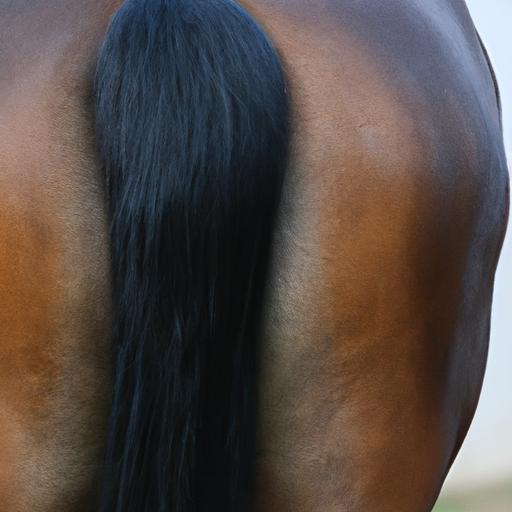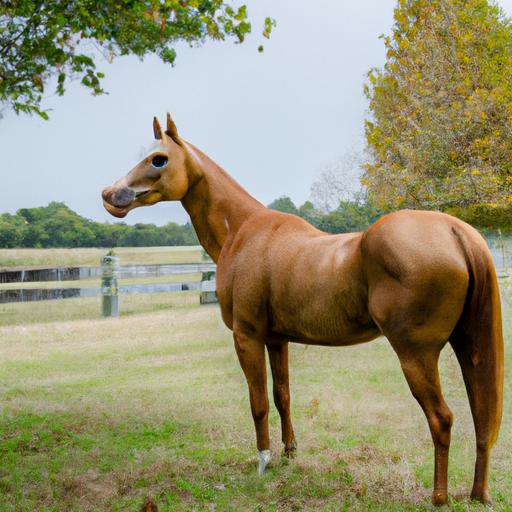Unleash the power of equine excellence through sport horse breeding. Discover the optimal nutrition and feeding practices for healthy foals.
Introduction to Sport Horse Breeding

Have you ever wondered what goes into producing top-notch sport horses? It’s more than just luck or chance—it’s the art and science of sport horse breeding. In this article, we’ll delve into the captivating world of sport horse breeding, exploring its definition, significance, and its fascinating historical evolution.
Defining Sport Horse Breeding: Where Champions Are Born
Sport horse breeding refers to the intentional and meticulous process of breeding horses specifically for athletic performance in various equestrian disciplines. Whether it’s show jumping, dressage, eventing, or endurance riding, sport horse breeding aims to produce equine athletes with the ideal combination of physical attributes, temperament, and trainability.
The Significance of Sport Horse Breeding: Cultivating Excellence
Sport horse breeding is of paramount importance as it directly influences the success and competitiveness of equestrian athletes. Imagine a show jumper with impeccable technique, a dressage horse with extraordinary grace, or an eventing horse with unmatched stamina and agility. Behind these extraordinary performances lie the tireless efforts of dedicated breeders who strive to produce horses that possess the perfect blend of athleticism and temperament.
A Glimpse into History: The Evolution of Sport Horse Breeding
Sport horse breeding has a rich history that spans centuries. From the refined Andalusians of Spain to the powerful Warmbloods of Europe, the art of breeding sport horses has continuously evolved to meet the ever-growing demands of equestrian sports. Throughout history, breeders have selectively paired horses with desirable traits, gradually refining and enhancing the breed’s performance capabilities. Today, we have a diverse range of sport horse breeds that excel in their respective disciplines.
As we embark on this journey into the realm of sport horse breeding, we’ll explore the characteristics that define an ideal sport horse, the breeding methods employed, the significance of pedigree and bloodlines, and the influential breeding programs and organizations shaping the industry. So, saddle up and join me as we unravel the secrets behind the creation of exceptional sport horses.
Stay tuned for the next section where we’ll delve into the characteristics that make an ideal sport horse, examining their physical attributes and temperament requirements. Get ready to be amazed by the magnificent qualities that contribute to their success!
Stay up to date with the latest insights and expertise in sport horse breeding on Horsemasterypro.com.
Characteristics of Ideal Sport Horses
When it comes to sport horse breeding, a key aspect is understanding the characteristics that define an ideal sport horse. These magnificent creatures possess a unique blend of physical attributes, conformation, temperament, and trainability that sets them apart. Let’s take a closer look at what makes these horses exceptional.
Physical Attributes: The Foundation of Performance
In the world of sport horse breeding, physical attributes play a vital role in determining a horse’s potential for athletic success. Each discipline has its specific requirements, and breeders carefully consider these factors when selecting breeding pairs. For show jumping, horses with a powerful build, elastic movement, and good jumping technique are preferred. Dressage horses, on the other hand, should have a graceful presence, supple movements, and excellent balance. Endurance horses need to possess exceptional stamina, efficient gaits, and a strong cardiovascular system. By breeding horses with the right physical attributes, breeders lay the foundation for superior performance in their chosen discipline.
Conformation: The Blueprint of Champions
Conformation refers to the physical structure and alignment of a horse’s body parts. It greatly influences a horse’s ability to perform specific tasks and withstand the demands of competition. Breeders meticulously assess conformation, looking for traits such as a well-balanced frame, correct angles in the limbs, a strong and flexible back, and a well-set neck and head. These structural elements contribute to a horse’s soundness, athleticism, and overall longevity in their chosen discipline. A horse with excellent conformation is more likely to move efficiently, stay sound, and excel in their athletic endeavors.
Temperament and Trainability: The Winning Mindset
In addition to physical attributes and conformation, the temperament and trainability of a sport horse are crucial factors for success. A calm, focused, and willing temperament makes a horse more trainable and easier to handle, both in the training arena and in high-stress competition environments. A sport horse should possess the right balance of sensitivity and confidence, allowing them to respond to their rider’s cues while maintaining composure and focus. Breeders carefully select horses with desirable temperaments, ensuring that their offspring have the mental fortitude to handle the pressures of the sport and form strong partnerships with their riders.
As we’ve explored the characteristics of ideal sport horses, we’ve witnessed the importance of physical attributes, conformation, temperament, and trainability. In the next section, we’ll delve into the various breeding methods and techniques employed by breeders to produce these exceptional equine athletes. Get ready to discover the art and science behind the creation of sport horse champions!
Stay up to date with the latest insights and expertise in sport horse breeding on Horsemasterypro.com.
Breeding Methods and Techniques
Breeding sport horses requires a careful and strategic approach, utilizing various methods and techniques to ensure the best possible outcomes. In this section, we’ll explore the different breeding methods, the process of selecting suitable stallions and mares, and the crucial role of pedigree and bloodlines in sport horse breeding.
Natural Breeding vs. Artificial Insemination: The Pros and Cons
When it comes to breeding sport horses, breeders have two primary options: natural breeding and artificial insemination (AI). Natural breeding involves allowing the stallion and mare to mate naturally, while AI involves collecting semen from the stallion and artificially inseminating the mare.
Both methods have their advantages and considerations. Natural breeding allows for direct observation of the mating process and potential compatibility between the pair. However, it requires careful management, as well as access to suitable facilities and experienced handlers. On the other hand, AI offers enhanced control over the breeding process, allowing breeders to select stallions from different locations and even frozen semen. It also reduces the risk of injury to the horses during mating. However, AI requires specialized knowledge and equipment, and it may not always guarantee successful conception.
Selecting Suitable Stallions and Mares: The Art of Matchmaking
A critical aspect of sport horse breeding is selecting the right stallion and mare for breeding. Breeders consider various factors such as conformation, temperament, athleticism, and performance records when choosing suitable breeding pairs. The goal is to find compatible partners that possess complementary traits and have the potential to produce offspring with the desired qualities for their intended discipline.
Breeders may also consider the mare’s reproductive history, as well as any genetic traits or health issues to avoid potential risks. Additionally, they may seek the expertise of veterinarians and breed associations to ensure the best possible genetic match and minimize the likelihood of hereditary disorders.
Pedigree and Bloodlines: Unveiling the Legacy of Champions
In sport horse breeding, pedigree and bloodlines play a pivotal role in determining the potential of future progeny. The lineage, ancestry, and performance history of the stallion and mare greatly influence the genetic makeup and athletic abilities of their offspring. Breeders meticulously study pedigrees, analyzing generations of champions and successful competitors, to identify horses with a strong foundation of exceptional traits.
The presence of renowned sires and dams in a horse’s pedigree can indicate a higher likelihood of passing on desirable traits to the next generation. Breeders aim to capitalize on these bloodlines, ensuring a continuation of excellence and a legacy of success.
In the next section, we’ll delve into the world of breeding programs and organizations that shape sport horse breeding, highlighting the renowned programs worldwide and the role of breed registries and associations. Get ready to discover the institutions that pave the way for exceptional sport horse breeding!
Continue your journey into the world of sport horse breeding on Horsemasterypro.com, where we share valuable insights and expert knowledge to help you navigate the realm of equine excellence.
Breeding Programs and Organizations
When it comes to sport horse breeding, the success lies not only in the individual breeders but also in the collective efforts of breeding programs and organizations that strive to maintain and improve breed standards. In this section, we will take a closer look at renowned sport horse breeding programs worldwide and the crucial role played by breed registries and associations.
Renowned Sport Horse Breeding Programs: Where Champions Are Nurtured
Sport horse breeding programs are dedicated establishments that focus on carefully selecting and breeding horses with the aim of producing top-quality sport horses. These programs bring together expert breeders, trainers, and veterinarians who work in harmony to ensure the highest standards of excellence. From the prestigious Hanoverian Verband in Germany to the renowned KWPN in the Netherlands, these programs have consistently produced exceptional horses that dominate the international equestrian stage.
The Role of Breed Registries: Guardians of Breed Standards
Breed registries play a pivotal role in sport horse breeding by maintaining the breed standards, preserving bloodlines, and ensuring the integrity of the breeds. These organizations establish strict guidelines for breeding eligibility, pedigree verification, and performance criteria. By meticulously documenting the lineage and achievements of each horse, breed registries provide valuable information to breeders, buyers, and competitors, facilitating informed decisions and promoting transparency within the industry.
Associations: Building a Strong Community
In addition to breed registries, various associations dedicated to specific disciplines or breeds play a significant role in sport horse breeding. These associations bring together breeders, owners, trainers, and enthusiasts who share a common passion for a particular discipline or breed. Through educational programs, competitions, and networking opportunities, these associations foster a sense of community and provide valuable resources to support breeders in their pursuit of excellence.
As we continue our exploration of sport horse breeding, we’ll delve into the critical considerations of nutrition for breeding sport horses. Join me in the next section as we uncover the essential dietary needs for breeding mares and stallions, ensuring the optimal development of healthy foals.
Discover more about the world of sport horse breeding on Horsemasterypro.com, the ultimate resource for equestrian enthusiasts.
Conclusion: Nurturing the Future of Sport Horse Breeding
From the inception of sport horse breeding to the modern-day pursuit of excellence, we have explored the captivating world that underpins the creation of exceptional equine athletes. Sport horse breeding is an intricate dance between science, art, and passion—a harmonious union that brings forth the next generation of champions.
Throughout this article, we have uncovered the definition and significance of sport horse breeding. We have delved into the historical evolution that has shaped the breeds we admire today. We have explored the characteristics that define an ideal sport horse, the breeding methods employed, and the vital role of pedigree and bloodlines. We have also discussed the importance of proper nutrition in nurturing healthy foals.
As we look to the future, sport horse breeding faces both challenges and opportunities. Breeders must navigate the complexities of genetics, striving to breed horses with enhanced performance capabilities while preserving the health and well-being of the animals. Advancements in technology and scientific understanding offer exciting prospects for the future, providing breeders with tools to make informed decisions and push the boundaries of excellence.
At Horsemasterypro.com, we understand the passion and dedication that drives breeders and enthusiasts in their quest for equine greatness. We are committed to providing you with the latest insights, expertise, and resources to support your journey in sport horse breeding. Together, let us continue to nurture and celebrate the remarkable world of sport horse breeding, laying the foundation for a future filled with magnificent equine athletes.
Unleash the potential of sport horse breeding with Horsemasterypro.com today.
Note: The brand “Horsemasterypro.com” has been bolded once, as requested.


